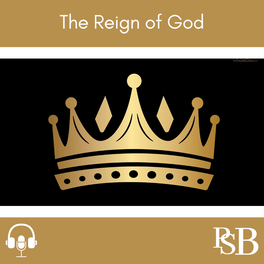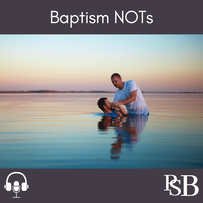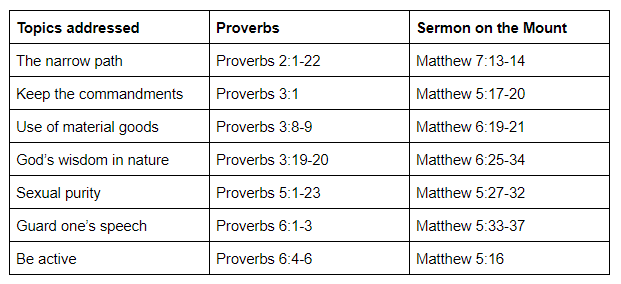|
When it comes to the Biblical view of "The Kingdom," it is important to remember that God has always been the ruler, His reign is eternal and universal, and His kingdom encompasses all of creation. But the reign of God has many dynamic features throughout the Bible. From the high view of God's eternal reign to how this reign worked during Israel's days to the reign of Christ in the New Era of Christianity, the reign of God is essential to Bible understanding. Join guest Jamie Thompson and Jonathan Edwards consider this rather large topic with a conversational approach.
0 Comments
What do you know about the book of Proverbs? If you’re like me, it can be a collection of little quotes or sayings that fit nicely on an inspirational calendar. This is, however, a far greater use for this book. The purpose of the Proverbs is to teach wisdom, the outcome of which is “justice, judgment and equity”. It takes wisdom to unravel some of the difficult sayings of the wise. Therefore, the more we understand the ways of wisdom in Proverbs, the more it will be unlocked to us to learn more. Join Jamie Thomson and me as we discuss the "Beginning of Wisdom" in Proverbs.
Why does the Bible say that God is a jealous God? After all, isn’t jealousy bad? James 3:16 says "For where jealousy and selfish ambition exist, there will be disorder and every vile practice." And yet, God also identifies as jealous. He does not do so discretely or with embarrassment…He is quite emphatic: Deuteronomy 4:24 says, "For the LORD your God is a consuming fire, a jealous God."
This is one of many Scriptures where God identifies as jealous. It may seem petty that a infinite cosmic being would be jealous of His creation. In fact, many skeptics and nonbelievers point to this attribute as their number one reason to not believe in the Bible. The seeming contradiction is that jealousy is sinful for us but okay for God. What are they missing when they form such a conclusion? In this episode, we will consider the following questions: (1) What is jealousy? (2)How can jealousy be good or righteous? (3) What is God wanting to communicate to us when He describes Himself as jealous? (4) Is there a "negative" side to the jealousy of God? (5) Does God’s jealousy help us?
If Jesus wrote a letter to your congregation...what would it say? This miniseries focuses on Revelation 2-3 and Jesus' letters to seven churches in Asia. Brother Aaron Boone joins in on a discussion of these churches, their faithfulness, their backsliding, and the takeaways that we can use for our churches today.
In Ezekiel 18, the prophet addresses a cliché, a proverb, that the Judean captives are using to describe their condition: “the fathers have eaten sour grapes, and the children’s teeth are set on edge.”
The Lord expresses shock that anyone would think that He would punish one generation for the sins of another generation. In His response He gives two reasons why this proverb is wrong. Both of the reasons are important and timeless. We need to understand these today.
Jeremiah 29:11 reads: Jeremiah 29:11 (NIV) For I know the plans I have for you,” declares the Lord, “plans to prosper you and not to harm you, plans to give you hope and a future."
When initially reading this verse , it is encouraging because it indicates that God has a plan for us, and those plans will allow for us to prosper, giving us hope for the future. For example, if a person has a bad day, after reading this the conclusion might be that tomorrow will be better because God has a plan for them. While this interpretation is not entirely incorrect, it is incomplete. Many scholars believe Jeremiah 29:11 to be one of the most misinterpreted verses in the bible in the way that it is often used in our society. Further study into this verse reveals a deeper message that carries multiple lessons. |
You can listen and subscribe at the following platforms. Click on the icon below of your choice:
Categories
All
Archives
May 2024
|






 RSS Feed
RSS Feed




